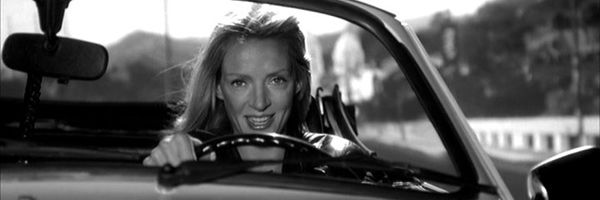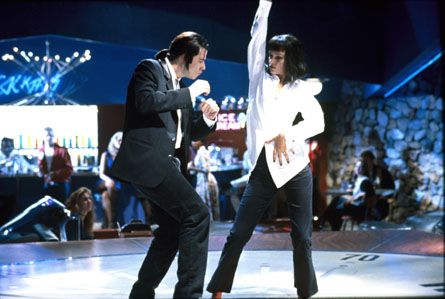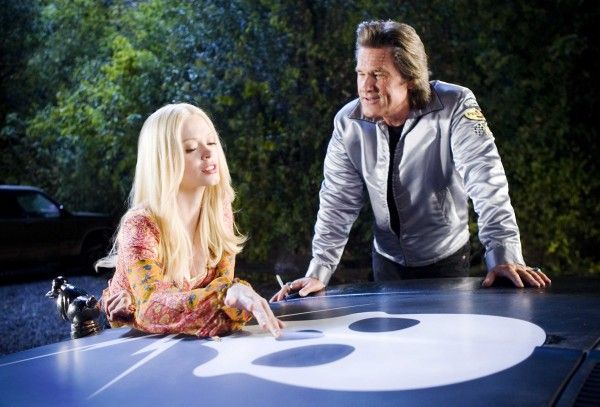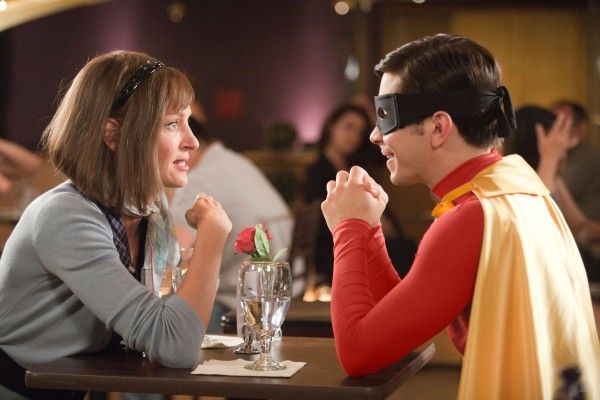After numerous hints and allusions to her fury toward Harvey Weinstein in recent appearances, including an Instagram post and a curious red-carpet interview, Uma Thurman let it all out in an interview with Maureen Dowd that ran in yesterday's New York Times. Amongst the bevy of grisly details, she accused the former Miramax honcho of sexual assault, which Weinstein has now responded to with threats of a lawsuit. Anyone who was holding out any hope of Weinstein making a genuine admission of guilt or attempting to make sincere amends for his past behavior should drop any and all expectations as of right now.
As Thurman explains in the interview, the incident was horrific and deeply troubling to her, but the aftermath was also incredibly upsetting. Apparently, the fallout between the actress and Weinstein led to a major rift with Quentin Tarantino, for whom she worked with on Pulp Fiction and the Kill Bill movies. The latter production is where things got outright dangerous for the actress, when Tarantino insisted on her driving a dilapidated car for the scene from Kill Bill, Vol. 2 where she drives to visit Bill's father figure, just before she goes to confront Bill. After voicing concerns to both the director and the producers, who claim to not remember her objections, she hesitantly agreed to do the scene, which ended in a crash that gave her serious neck trauma and other injuries. Here's how Thurman explains it in the Times:
“Quentin came in my trailer and didn’t like to hear no, like any director....He was furious because I’d cost them a lot of time. But I was scared. He said: ‘I promise you the car is fine. It’s a straight piece of road...‘Hit 40 miles per hour or your hair won’t blow the right way and I’ll make you do it again.’ But that was a deathbox that I was in. The seat wasn’t screwed down properly. It was a sand road and it was not a straight road.”
The Dowd interview includes a video of the shot when this happened that is frankly difficult to watch, and it's all the more enraging to find out that Thurman was not allowed to see or request a copy of the footage for 15 years. This is what she had to say about the aftermath of the crash:
“The steering wheel was at my belly and my legs were jammed under me...I felt this searing pain and thought, ‘Oh my God, I’m never going to walk again,’...When I came back from the hospital in a neck brace with my knees damaged and a large massive egg on my head and a concussion, I wanted to see the car and I was very upset. Quentin and I had an enormous fight, and I accused him of trying to kill me. And he was very angry at that, I guess understandably, because he didn’t feel he had tried to kill me.”
Dowd makes a good point that many fans of the director's work see "echoes" of this wildly disturbing incident in Tarantino's follow-up to Kill Bill, Death Proof. For those who haven't seen it, the film features myriad women being killed or put in dangerous situations in automobiles, including fellow Weinstein accuser Rose McGowan and Thurman's regular stunt double, Zoe Bell. If this is true, it renders what was once one of Tarantino's best movies into a grotesque and unimaginably petty hit job on a seemingly close friend and regular collaborator. And the fact that Tarantino essentially said that he forgot about Thurman's accusations against Weinstein, his longtime backer, when confronted about them for a second time does not speak well of the director's attitude toward a terrifying situation for the actress.
You should really read the whole story, which has been linked to up top and includes some thankfully positive notes about Thurman's relationship with Ethan Hawke, her former husband, who rushed to defend her even as they were going through a divorce. One can only hope that Thurman's experiences help clear out Hollywood of all the men who used their power and sense of status to assault or rape women and men. Personally, I'd also hope that this dismantles the idea that directors being tough on their actresses in the name of a great performance or shots somehow speaks to the director's passion or genius, after years of Alfred Hitchcock and Stanley Kubrick being venerated for essentially terrorizing their performers. The changes here need to go deep, both for the industry and the audiences.





